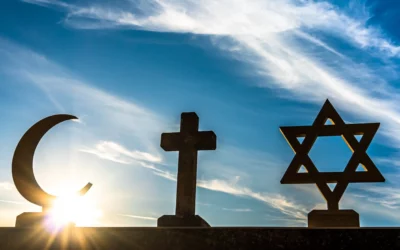
Written by William C. Duncan
June 29, 2023

The Supreme Court is closing out its current term. By the time this post is published, the court will likely have released its final opinions before the justices take time off prior to the start of the fall term. Even a cursory glimpse at the news in the last weeks of the court’s term makes clear that the justices are busy. But if you have a case you hope the Supreme Court will take, you may wish they would take on a few more.
A recent post here highlighted a pending religious freedom case from Colorado. The case involves a Christian school that is being sued by a former employee. The employee is arguing that the school fired him because of his views about racial discrimination at the school. The school argues that the employee taught messages at odds with the school’s faith commitment.
The school asked the federal trial court assigned to the case to dismiss it. It relied on recent Supreme Court decisions holding that the First Amendment does not allow courts to second-guess a religious organization’s decisions about who will convey its message. This is known as the “ministerial exception,” which prevents secular courts from making rulings based on disputes over religious doctrines.
The most recent Supreme Court decisions applying the exception were very similar to this case, involving religious schools sued by former employees claiming discrimination. In these cases, described in the prior post, the court held the First Amendment precluded these lawsuits because the teachers who sued were responsible for teaching and representing the school’s faith.
In the Colorado case, however, the district court declined to dismiss the case, and instead determined a jury would have to decide whether the teacher was really in a “ministerial” position. The U.S. Court of Appeals for the 10th Circuit agreed. Since this case was so similar to the other decisions, the school asked the Supreme Court to hear its appeal.
The court declined to do so without explanation earlier this month. Why would the court decide not to take a case that seems to fit the pattern of its previous decisions?
The simplest explanation is that the Supreme Court agrees with the lower courts that a trial is needed to determine whether the employee, described by the school as a chaplain, is enough of a minister to trigger the exception.
There is another possibility, exemplified by another recent religious freedom case. In Kennedy v. Bremerton School District, the court determined that a coach at a public school could not be punished for praying alone on a football field after games, but only after declining to hear an appeal from district and appeals courts decisions. It was only after the case was decided in favor of the school’s actions in the district court and court of appeals each a second time that the Supreme Court accepted the case for review and reversed the lower courts.
What purpose does this type of process serve?
The justices may want to give the lower courts the opportunity to apply the court’s precedent correctly without taking on every case in which the lower courts might get it wrong. The Kennedy decision demonstrates that the court can always come back to a case if necessary.
In fact, doing so can advance an important policy related to the rule of law. Consistency throughout the federal court system is critical for preserving trust in the legal system. If lower courts begin to believe they can issue rulings at odds with precedent because the Supreme Court can act as a backstop, they may not be careful about applying precedent. Subsequently, parties to lawsuits may have an incentive to try to get decisions from lower courts at odds with the law in the hope that an overwhelmed Supreme Court won’t be able to fix every mistaken lower court opinion.
Obviously, whether the court’s denial of the petition to review the Colorado case will merely delay the inevitable or help ensure fidelity to the rule of law remains to be seen as the case unfolds.

Insights: analysis, research, and informed commentary from Sutherland experts. For elected officials and public policy professionals.

- SCOTUS recently declined to take a religious freedom appeal by a Colorado religious school, despite the petition being similar to cases in which the court ruled in favor.
- This denial may mean the court felt the school did not have a strong case.
- The court’s decision may simply be a way to encourage lower courts to apply existing precedent to ensure consistent application of law.
Read More
Looking at Supreme Court and religious freedom through the lens of the presidential campaign
Two constitutional issues highlight similarities and differences between the Biden and Trump administrations.
Education policy to consider during the 2024 election season
Here’s a look at what each presidential candidate is likely to focus on in education, given their track records and campaign platforms.
Ignoring the text of the Constitution is a mistake
A written Constitution is entirely superfluous if the document is simply meant to give the people what they want.


